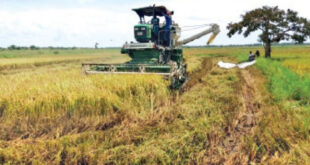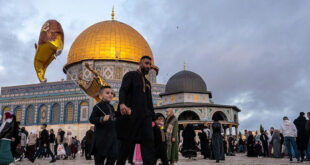Like nearly every other multi ethnic country, we have had a history of ethnic conflict. But, compared to several other countries, our conflict was mild and not posing a serious threat to national unity till the mid 20th century. The so called 50-50 issue raised by the Tamil Congress before the Soulbury Commission in the mid 40s was a non-starter, and quickly and smoothly disposed of. Far more insidious was the issue of citizenship and voting rights of ‘Indian Tamils’ (mostly Tamils who had been recruited into the plantations in the course of the first half of the 20th century or earlier, and their descendants). The State and the Plantation Leadership for economic reasons, the non-Tamil population for political reasons, and the Sri Lankan Tamils for social reasons (class & caste), had contributed to keeping the ‘Indian Tamils’ isolated from the other communities and on the margin of the Sri Lankan population.
In consequence, the legislation to deprive nearly all of them of citizenship and voting rights was very quickly conceived, drafted and passed almost immediately after independence with very little opposition apart from the ‘Indian Tamil’ and a minority of Sri Lankan Tamil Members of Parliament led by S.J.V. Chelvanayakam (who broke away on this issue and founded the Federal Party), and a few other individuals in Parliament, mostly on the left. Although it was their underpaid, indentured labour that was the main stay of our export earnings, the vast majority of Indian Tamils were reduced to statelessness overnight. One consequence was that the Tamil presence in Parliament was substantially depleted, paving the way for Sinhala Only (The Official Language Act of 1956), as well as a long succession of acts of Tamil political militancy and anti-Tamil riots and pogroms, leading to the twenty four years long civil war (1985 to 2009) involving much destruction and bloodshed.
Just as some Sri Lankan Tamil MPs were co-opted into backing the exclusion of citizenship and voting rights from ‘Indian Tamils’, Tamil speaking Muslim MPs based outside the North and East were co-opted into voting for Sinhala only. The honourable exceptions were the Eastern based Muslim MPs and the Jaffna born but Colombo based Senator A. M. A. Azeez. S. J. V. Chelvanayakam captured the leadership of the Sri Lankan Tamils and retained it till he died in the late 1970s. The ethnic animosity built up over the decades has led to continuing oppression and linguistic discrimination.
Some sporadic attempts were made to remedy the damage. Regulations were passed to permit ‘the reasonable use of the Tamil language in administration’, the 13th Amendment to the Constitution was passed under Indian pressure, followed by the 16th Amendment enhancing the official status of Tamils and also recognizing English as a link language, and other reforms were proposed but all these have remained largely or partly unimplemented. A new draft constitution was introduced by the then President Chandrika Bandaranaike Kumartunga some years ago but it was not passed. De Jure the official status of the Tamil language is now satisfactory in most respects, but de facto the situation is worse than it was in the wake of Sinhala Only more than half a century ago. Ethnic animosity is also worse than it has been for half a century. No credible attempt has been made in recent years to promote reconciliation. The Second and Third Constitutions have made things worse, and it looks as if no serious move is underway to remedy the situation.
Absence of political will
There can be no progress unless there is political will on the part of the President who is now far more powerful, politically and legally, than President Kumaratunga or any other President ever was. Unfortunately, President Mahinda Rajapaksa has given no indication of possessing such political will. However, if the political balance, within Sri Lanka and internationally, changes dramatically, that situation may change. If President Rajapakse does give a lead, it seems unlikely there will be any effective opposition to Tamil language rights being established, nor to the promotion of ethnic reconciliation.
Mistakes made by political leaders of all ethnic groups and many political parties have contributed to aggravating the problem. The newspapers and other journals (Sinhala and English media) have also contributed to keeping the Sinhala population largely ignorant or insensitive to the problems of Tamil speakers. The schools, particularly the Government schools that cater to a large majority of the population, are mostly segregated by language and even by religion. Moreover, Sri Lanka is almost unique among multi ethnic countries in that the educational system does not provide for compulsory multi-lingual competency whether in schools or in the universities. All these contribute to perpetuating ethnic divisions.
In my opinion the two most important requirements are a strong lead towards reconciliation from the President, and the use of schools to promote both multilingualism and communal amity. The President can direct and empower the Official Language Commission to enforce the implementation of the language regulations which are largely adequate but have not been fully implemented. In particular Sinhala speakers, Tamil speakers and, wherever possible, English speakers must be served in their own languages by public sector institutions. This may require the training and recruitment of large numbers of both translators and Tamil speaking public servants to many institutions including the police and armed services. Officers who function multi-lingualy should be rewarded and those unable or unwilling to so function should be penalized. There is potential for an immediate improvement, and the problem can be overcome within a few years. What is lacking is the political will.
Teaching of all languages
As far as the schools are concerned, there is a need to provide for the teaching of all three languages in every school, and this requires the recruitment of language teachers, Sinhala, Tamil and English, the two latter categories in large numbers. In the case of English language teachers, recruitment from overseas (perhaps mostly from India) on a contract basis for a limited period may be necessary. In addition the Ministry of Education should be able to device a diverse range of programmes to promote positive inter-ethnic interactions throughout and across the island.
A vital supplementary measure would be the revision of curricula of subjects such as History, Civics, Sociology and Languages with a view to promoting ethnic amity. Some of the text books now prescribed seem to promote prejudice rather than amity. Among the prescribed language readers should be translations of outstanding literature in all three languages with special focus on novels, short stories and essays that would highlight inter-ethnic linkages and promote ethnic amity. One of the novels that merit such prescription is ‘Manimekalai’ which is an outstanding Tamil classic of the Sangam period (about 2000 years ago) in which the heroine is a South Indian Tamil Buddhist nun who visited Sri Lanka and is particularly associated with the Vihara in Nagadeepa/Nainativu. An essay that merits similar prescription is a historical account by Ven. Dharmaratne Thera titled ‘Buddhism in South India’. South Indians should be seen not as meddlesome enemies (which some neighbours sometimes are!) but as friendly neighbours with whom we have many cherished links.
Particular attention needs to be paid to promoting inter-school competitions and programmes linking schools from all parts of the island. These may include debating, essay writing, sports, camping and joint visits to places of common interest. Teachers and students could contribute valuable ideas on this subject. It’s in the schools that programmes of ethnic amity and national integration could most easily and effectively begin, and it is schoolchildren, untainted by prejudices built up over the years, who may be best equipped to give the lead in reconciliation.
The Commission of Inquiry on Lessons Learnt and Reconciliation has made some excellent recommendations, although the implementation of those recommendations has been unduly tardy. It will help a great deal to expedite the implementation of all the Commissions recommendations in full. Perhaps there may be a need for more such Commissions to be appointed to make recommendations in particular fields that are critical to national reconciliation, e.g. Education. It is also necessary to crack down hard on acts that damage national reconciliation, e.g. attacks on religious leaders and places of worship. It is equally important to disarm para-militias and to prosecute those who attack ( and even kill) journalists and others seen as political opponents. It is necessary to protect the judiciary and to ensure that the police play their part effectively and impartially.
Journalists and civil society, local and international, can play lead roles in reconciliation. Unhappily, journalists and civil society are currently viewed with undue suspicion and every criticism from them is regarded as hostile to the state. In consequence valuable resources for nation building and national reconciliation are silenced or marginalized. This is most unfortunate because in the decades before and soon after independence, we had a rich tradition of outstanding journalism. We yet have many good journalists (many bad ones too!) and it is yet possible to reconstruct that lost proud tradition.
Need for better Constitution
If any country is to be united and to advance, it needs a Constitution that binds the different sections of the population, and in the formulation of which all sections of the people have participated. From that perspective as well as many others, our present constitution is a disaster; so too the 1972 Constitution which introduced the ‘Bumiputra’ principle, retained in the 1978 constitution, that the Sinhalese and Buddhists enjoy primacy. Our first constitution, designed by Sir Ivor Jennings was better in many respects though it too lacked the participation of the people in its formulation. We need a new, inclusive constitution. The Indian and South African constitutions, both designed a few decades ago, are excellent examples in the process of their respective formulation, and in the quality, inclusiveness and balance of their contents.
In contrast our 1972 and 1978 constitutions were deliberately exclusive and ethnically disparate. In particular, the Tamil leadership had no hand in their formulation. A submission by a group of eminent Tamils to those who drafted the 1972 constitution affirming the unity and integrity of the population as well as their diversity was summarily rejected and refused a hearing. The concluding paragraph of that submission, quoted below, clearly indicates the tenor and orientation of those who submitted it and the needless arrogance of those who rudely refused to entertain it. That paragraph from that submission from eminent Tamils in Jaffna reads as follows: "If Sri Lanka is to be true to herself, those who are charged with the solemn duty of writing her Constitution should pay heed to our heritage both in the approach to constitution making and in what they write into it. Our children and our children’s children should be able to say, with one voice – Lanka is our great motherland, and we are one people from shore to shore; we speak two noble languages, but with one voice; and this Constitution which our fathers fashioned together in times of yore shall serve as our nation’s charter for the years to be".
Post Disclaimer | Support Us
Support Us
The sailanmuslim.com web site entirely supported by individual donors and well wishers. If you regularly visit this site and wish to show your appreciation, or if you wish to see further development of sailanmuslim.com, please donate us
IMPORTANT : All content hosted on sailanmuslim.com is solely for non-commercial purposes and with the permission of original copyright holders. Any other use of the hosted content, such as for financial gain, requires express approval from the copyright owners.
 Sri lanka Muslims Web Portal Sri Lanka Muslims News Center
Sri lanka Muslims Web Portal Sri Lanka Muslims News Center

 Donate
Donate


